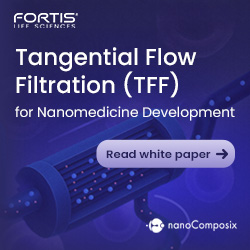LIXTE Biotechnology’s Lead Clinical Compound Increases Effectiveness of Cancer Immunotherapy
LIXTE Biotechnology Holdings, Inc. recently announced a recently published article in the journal Cancer Research showed that PP2A, the pharmacologic target of LIXTE’s lead clinical compound, LB-100, when inactivated in preclinical models of glioma, activates a complex intracellular signaling system, the cGAS-STING pathway. This leads to an activation of interferon signaling, an increase in MHC class I expression on tumor cells, an increase in CD8+ killer T cell proliferation, while at the same time reducing immunosuppressive tumor associated macrophages. Consequently, as shown in the article, PP2A inactivation sensitized the immunologically “cold” glioblastoma cells to immune checkpoint blockade therapy in vivo.
The May 23, 2023 article in the journal Cancer Research, titled PP2Ac Deficiency Enhances Tumor Immunogenicity by Activating STING-Type I Interferon Signaling in Glioblastoma, by Mondal et al. from the Department of Neurological Surgery, University of California, San Francisco.
John S. Kovach, M.D., CEO and Founder of LIXTE, said “The case for combining LB-100 with immunotherapy is ever more compelling. We reported last year on emerging clinical evidence that PP2A inhibition may sensitize clear cell ovarian cancer patients to checkpoint inhibitors (https://ir.lixte.com/news-events/press-releases/detail/77/inactivating-mutations-in-scaffold-component-of-pp2a-the). We currently have one active multi-center trial in which LB-100 is combined with immunotherapy and chemotherapy in small cell lung cancer (NCT04560972), and are finalizing additional trials of LB-100 with immunotherapy for treatment of immunologically unresponsive tumors. Lixte has long been interested in determining whether LB-100 potentiates standard treatment of glioblastomas. Thanks to the work of Mondal et al., we are now keenly interested in assessing whether LB-100 facilitates immunotherapy of primary brain tumors, among other immunologically ‘cold’ tumors for which more effective treatments are needed.”
Rene Bernards, Professor of Molecular Carcinogenesis at the Netherlands Cancer Institute and member of the LIXTE Board of Directors, added “Our own recent research provides yet another reason to combine LB-100 with immunotherapy as phospho-proteomic analysis of LB-100 treated colon cancer cells identifies mRNA processing as a major pathway perturbed by LB-100. As a consequence of LB-100 exposure, colon cancer cells contain a significant amount of incorrectly spliced mRNAs, which is a known source of neo-antigens that can help turn an immunologically ‘cold’ tumors ‘hot’ and vulnerable to immunotherapy.”
LIXTE Biotechnology Holdings, Inc. is a clinical-stage pharmaceutical company focused on new targets for cancer drug development and on developing and commercializing cancer therapies. LIXTE has achieved a breakthrough demonstrating that its first-in-class lead clinical PP2A inhibitor, LB-100, is well-tolerated in cancer patients at doses associated with anti-cancer activity. Based on extensive published preclinical data (see www.lixte.com), LB-100 has the potential to significantly improve outcomes for patients undergoing various chemotherapies or immunotherapies. LIXTE’s new approach has no known competitors and is covered by a comprehensive patent portfolio. Initial proof-of-concept clinical trials are in progress.
Total Page Views: 1269














